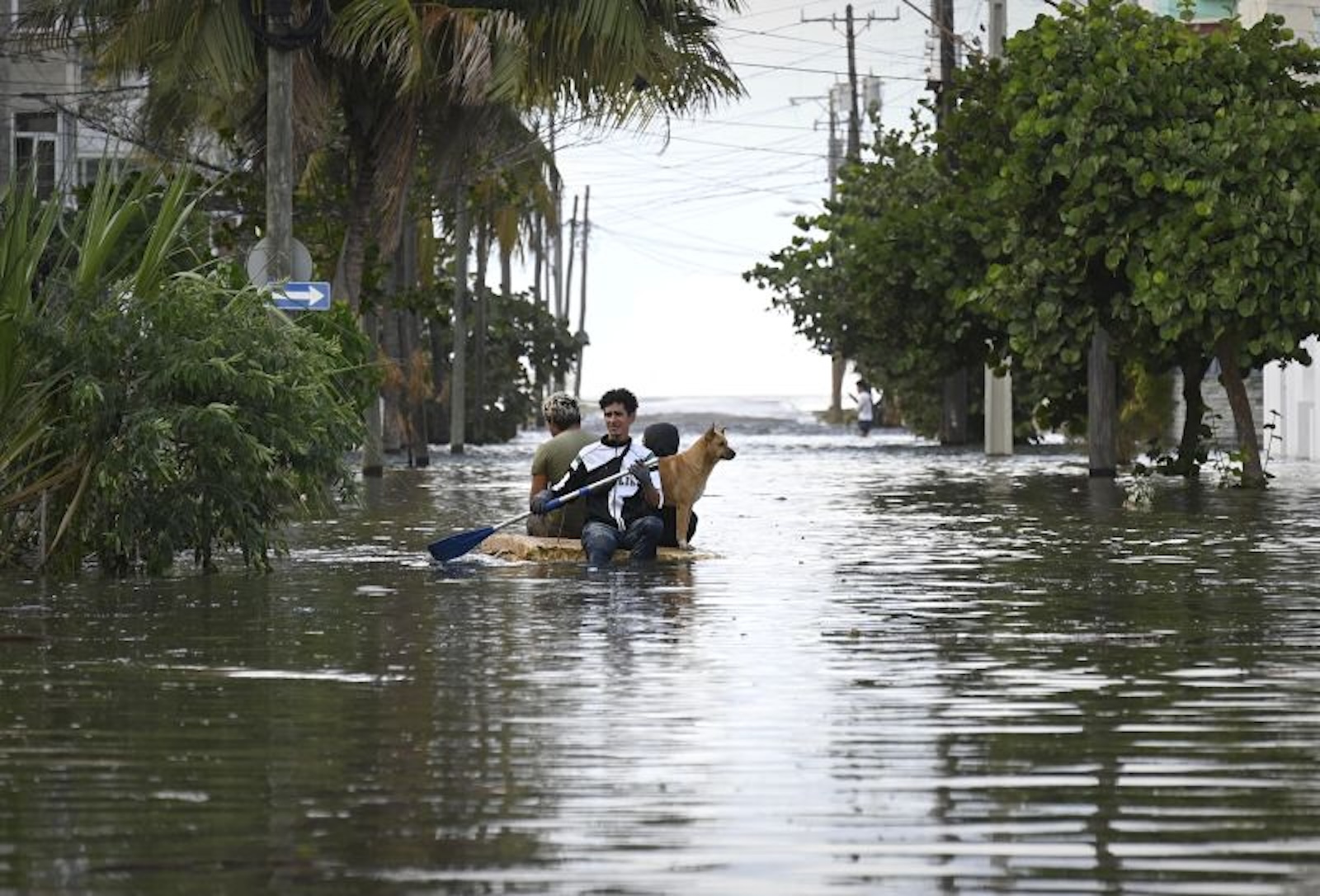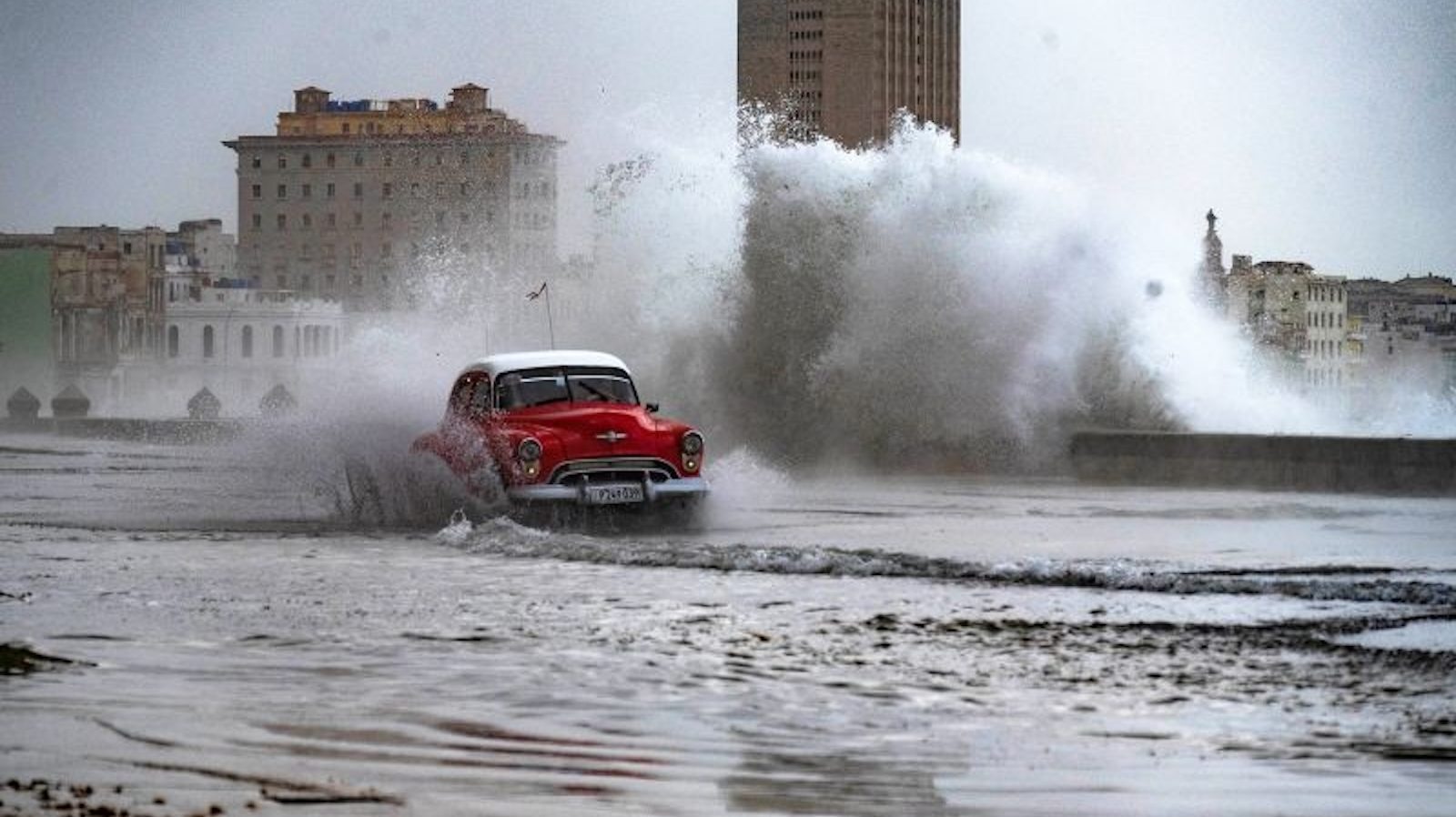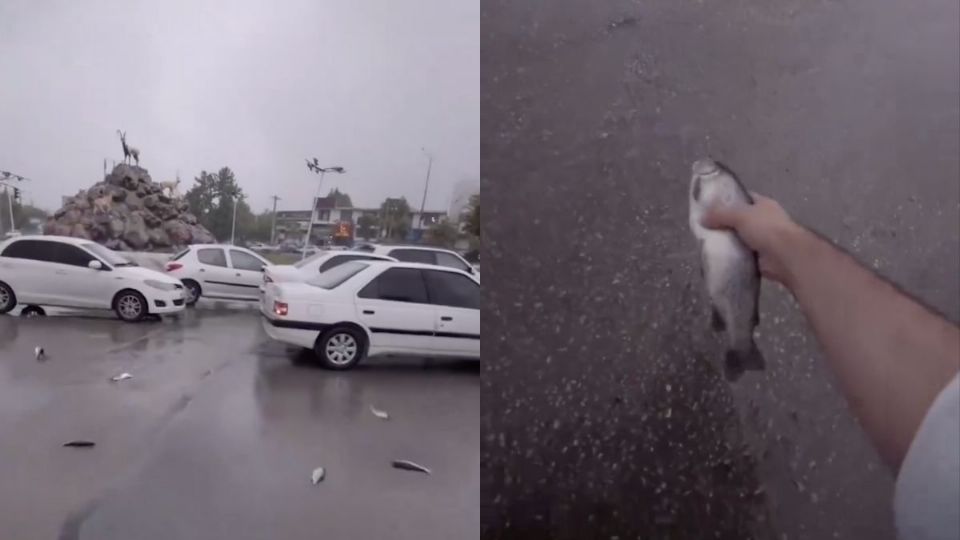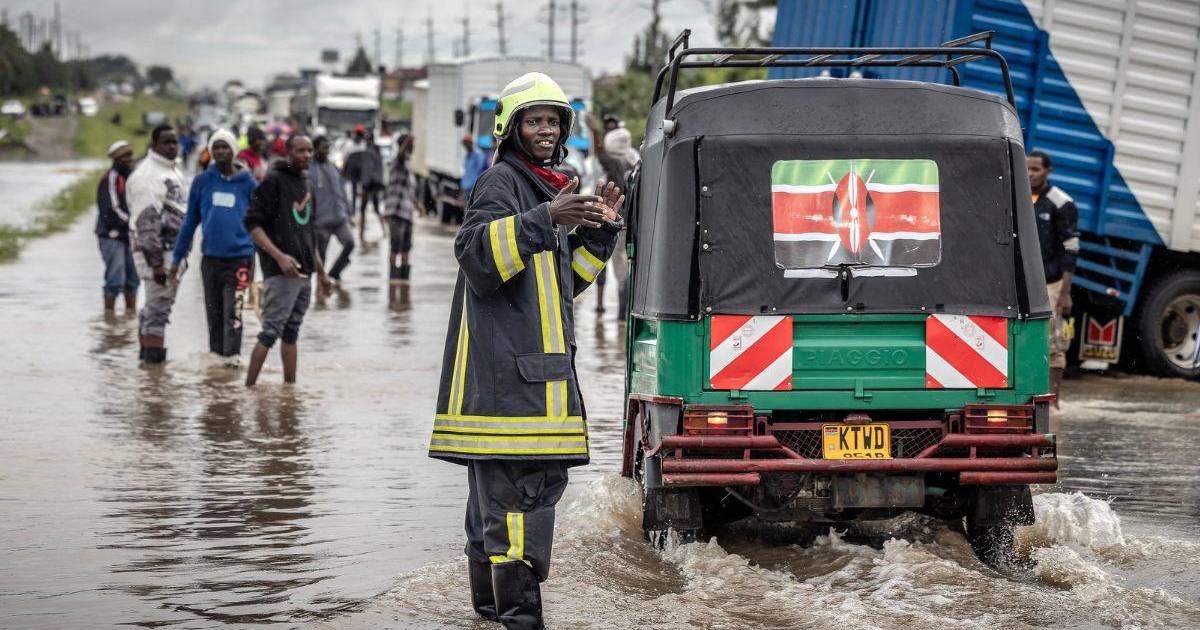(Reuters) — Cuba's northern coast was unseasonably cold on Tuesday, with white waves flooding streets with seawater, scattered power outages and debris and fallen branches littering the capital, Havana.
Winds of up to 100 kilometers per hour hit western parts of the island, while storms and strong winds moved south from Florida, where similar conditions were recorded earlier this week.
Havana residents took shelter overnight as fluorescent lights lit up the city, but slowly took to the streets on Tuesday morning in jackets and hats as temperatures dropped to 12 degrees Celsius, an unusually cold temperature for Cuba.

People take a boat through a flooded street in Havana on February 6, 2024. (Credit: Yamil Lage/AFP/Getty Images)
At dawn, water flowed through some city streets like coastal rivers, moving masses of jellyfish, algae and flotsam landward.
“It's something really new… we're not used to this kind of cold,” Havana resident Jacqueline Dalardes said as she strolled along the city's Malecon esplanade. “The climate has changed.”
Havana, a coastal city built centuries ago on the shores of the Gulf of Mexico, is particularly vulnerable to rising sea levels.
Havana, a coastal city built centuries ago on the shores of the Gulf of Mexico, is particularly vulnerable to rising sea levels and strengthening storms caused by human-induced climate change, according to scientists and urban planners.
A third of its 2.2 million people live in areas threatened by water invasions, according to the United Nations Development Programme.
Sea-level rise threatens some coastal cities like Havana and could completely wipe low-lying states off the map in parts of the South Pacific Ocean.




:quality(85)/cloudfront-us-east-1.images.arcpublishing.com/infobae/ZDGCIB4BC3VZF2L3BL42EDL5HU.jpg)
